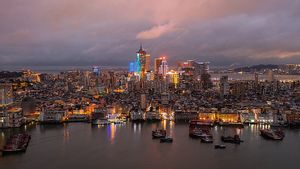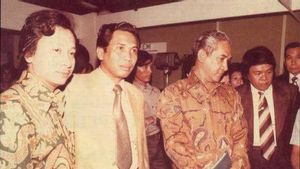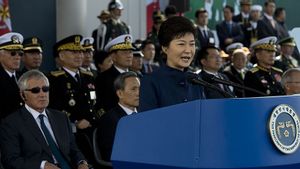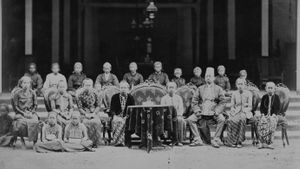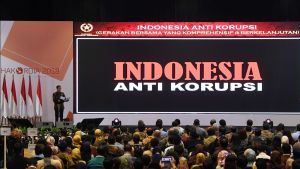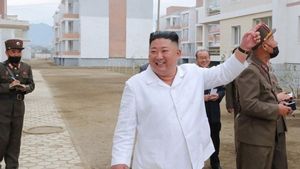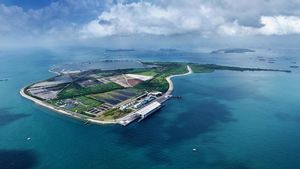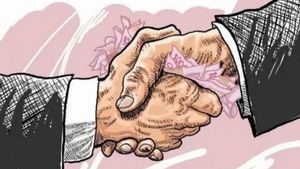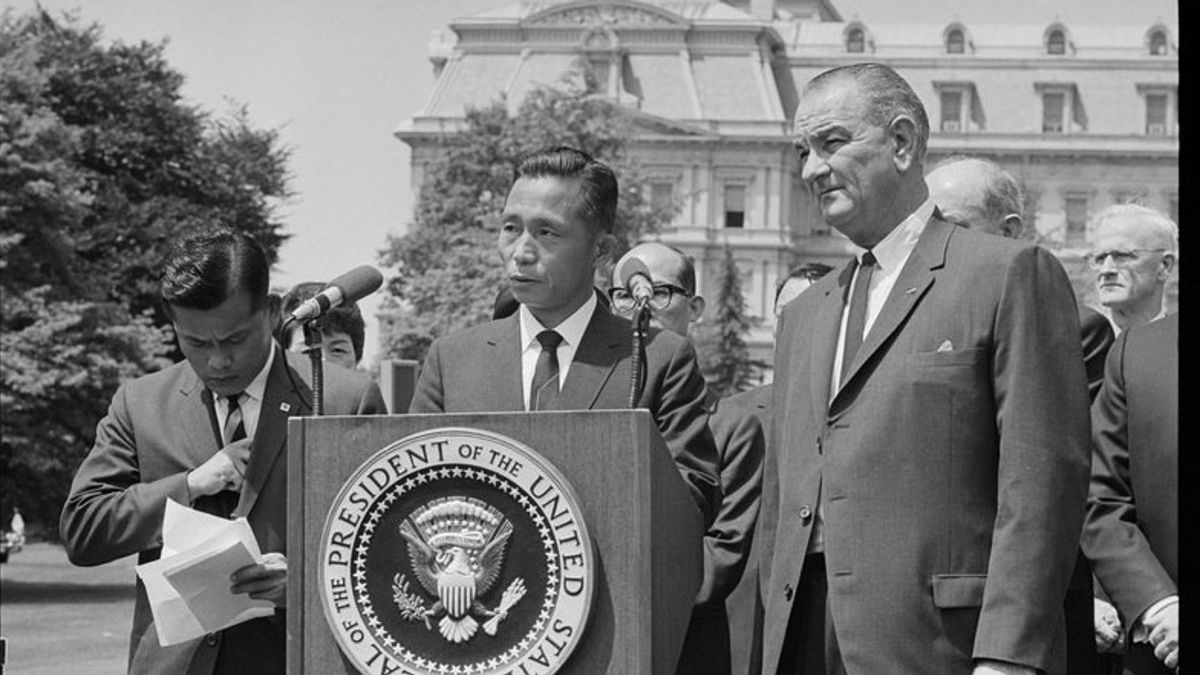
JAKARTA - The name Park Chung-Hee is a major dilemma in South Korea's (South Korea) long history. On the one hand, the South Korean president was able to bring the wind of change. Economic growth soared and the status of the people of South Korea rose.
On the other hand, Park runs his government authoritarianly. Instead of just pushing back his political opponents, South Korean students who spoke out loud were also crushed. Each campus 'house of freedom of opinion' is occupied by the military junta. Whoever opposes will be dealt with.
The new state attorney is independent for a limited amount of corn. South Korea had felt it when it just escaped from Japanese grip in 1945. South Korea's first president, Syngman Rhee, often racked his brain to raise the country's rank.
The pattern of authoritarian rule was chosen. The study was chosen because the economy was in disarray. In fact, far from fire. Authoritarian leadership did not bring much significant results. Political and economic stability has not been achieved.
South Korea's condition did not necessarily bring change. Moreover, when the throne of South Korea's number one person was handed over to Yun Posun. Change is an expensive price that is difficult to redeem. However, that does not mean hopeless.
Everything changed when Major General Park Chung-Hee took over the government by becoming the 3rd President of South Korea since 1962. His leadership was able to bring fresh air to South Korea and the rest.
Park proved that he was able to bring South Korea to an era of progress, rather than destruction. Contributions that thought South Korea would not advance were immediately silenced with a breakthrough. He was able to make South Korea's economic growth skyrocket.
Park's strategy varies. The most well-known strategy is Park's courage to perpetuate the normalization of relations between South Korea and former colonialists, Japan. The option, which was originally called controversial, was able to become an important foundation for the South Korean economy.
Japan provides funds as well as large loans to South Korea. The funds were then used by South Korea as loans to local entrepreneurs. Park also began to replace the agrarian South Korean narrative into a strong industrial engine. The strategy was successful.
South Korea is able to profit from Bejibun. This profit made the lives of the South Korean people increase, from village to city. Development everywhere. Likewise economic growth. Park was then nicknamed the Father of South Korean Development.
관련 항목:
The normalization of relations between the two countries (South Korea-Japan) was signed in 1965. In the next step in an effort to reduce tensions and confrontations, President Park spearheaded the holding of talks with North Korea and he attempted to hold a non-aggression agreement between the two countries, but brought no results.
"Almost in all areas of government life under the leadership of President Park, it can improve the situation better than before. However, progress has not yet been achieved in the political field. Political stability has not been completed. Relations with the north remain tense," explained Herman Sastra in his writings in Yudhagama Magazine entitled World War III Starting from the Korean Peninsula (1983).
One side of Park's leadership is praised. On the other hand, Park's leadership was blasphemed. The dilemma was because Park led South Korea with an authoritarian weapon. He doesn't like anyone disturbing his power. Whoever perpetuates the criticism will be crushed.
Park was able to deflate the role of the National Assembly (Apart from the DPR) which in fact made laws and executive supervisors in 1972. The National Assembly was cut down as a military power stamp. The policy is remembered as the Yushin Constitution.
Press freedom is also a dream in broad daylight. The press began to be controlled by the authorities. The government is like an allergy to bad news. This condition is exacerbated by his repressive attitude towards students throughout South Korea.
The government began to interfere in the campus climate which incidentally was critical. Political discussions to student demonstrations were tried to be suppressed. In fact, the government sent the military junta to keep students orderly on campus.
Anyone who insists on fighting the government will surely be arrested, kidnapped, and tortured. This condition has brought fear among students. Park is considered a dictator who is suffering the people. Moreover, Park did not hesitate to hunt down and kidnap those who were against the government.
The effort made Park's enemies stand on the ground. Even the narrative demanding him resign continues to be sounded by students. Park's power then collapsed because the head of South Korean spy Kim Jae-Gyu was killed at a dinner on the outskirts of Seoul on October 26, 1979. The tragic death ended Park Chung-Hee's 17-year dictatorship in South Korea.
Even though political parties exist, they are meaningless because political activities are restricted. The press is under strict censorship. The media company is told what to print and what should not be printed. Universities, which have been the initiators of freedom of expression, are under the control of the Government.
In addition, courts and judges are under the rule of the President. The Central Intelligence Agency, apart from gathering information abroad and maintaining domestic security, is a secret police force that has created an atmosphere of fear with arbitrary arrests. Military officers, businessmen, politicians and even CIA officials themselves have been removed, "said Richard Vocational in his writing in The New York Times News Letter entitled President Park's South Korea: There Is Only One Path, and It Is His (1973).
The English, Chinese, Japanese, Arabic, and French versions are automatically generated by the AI. So there may still be inaccuracies in translating, please always see Indonesian as our main language. (system supported by DigitalSiber.id)


